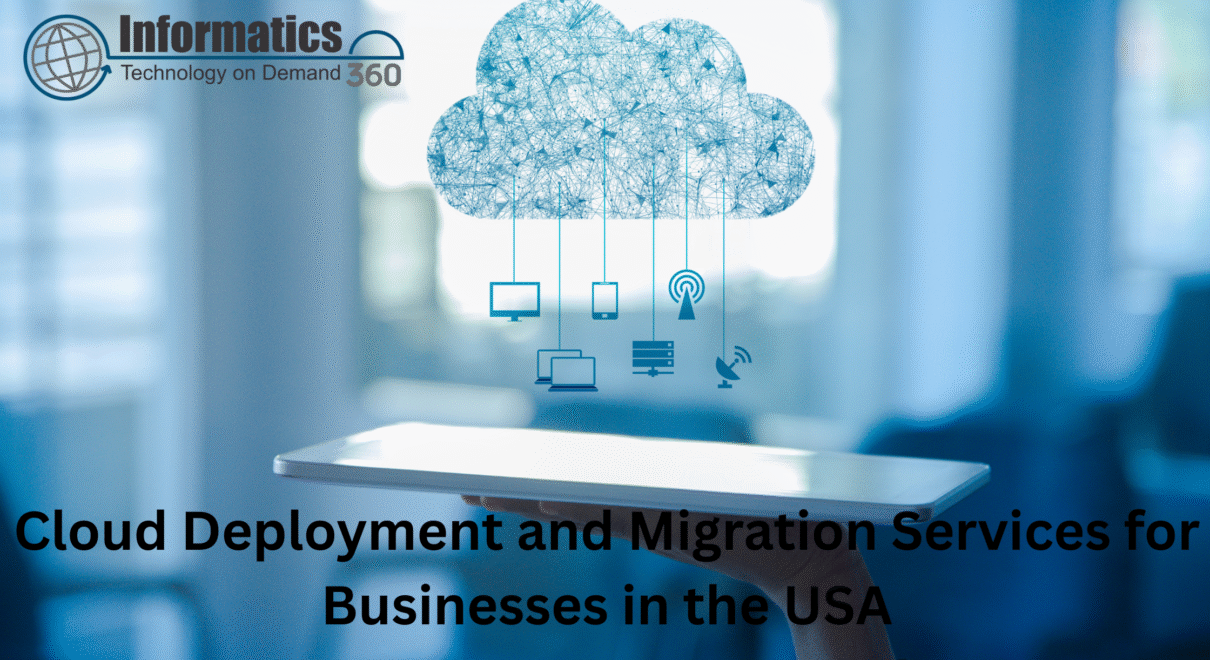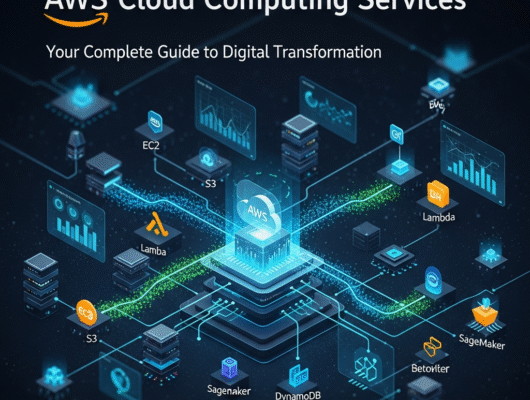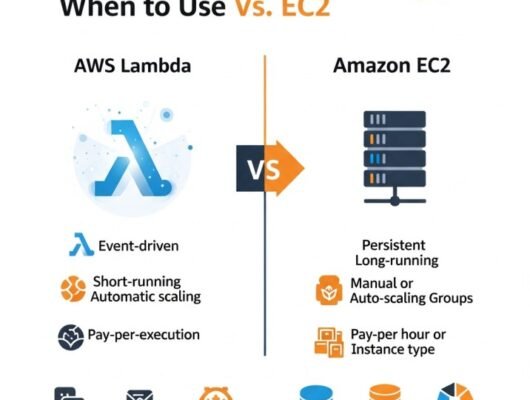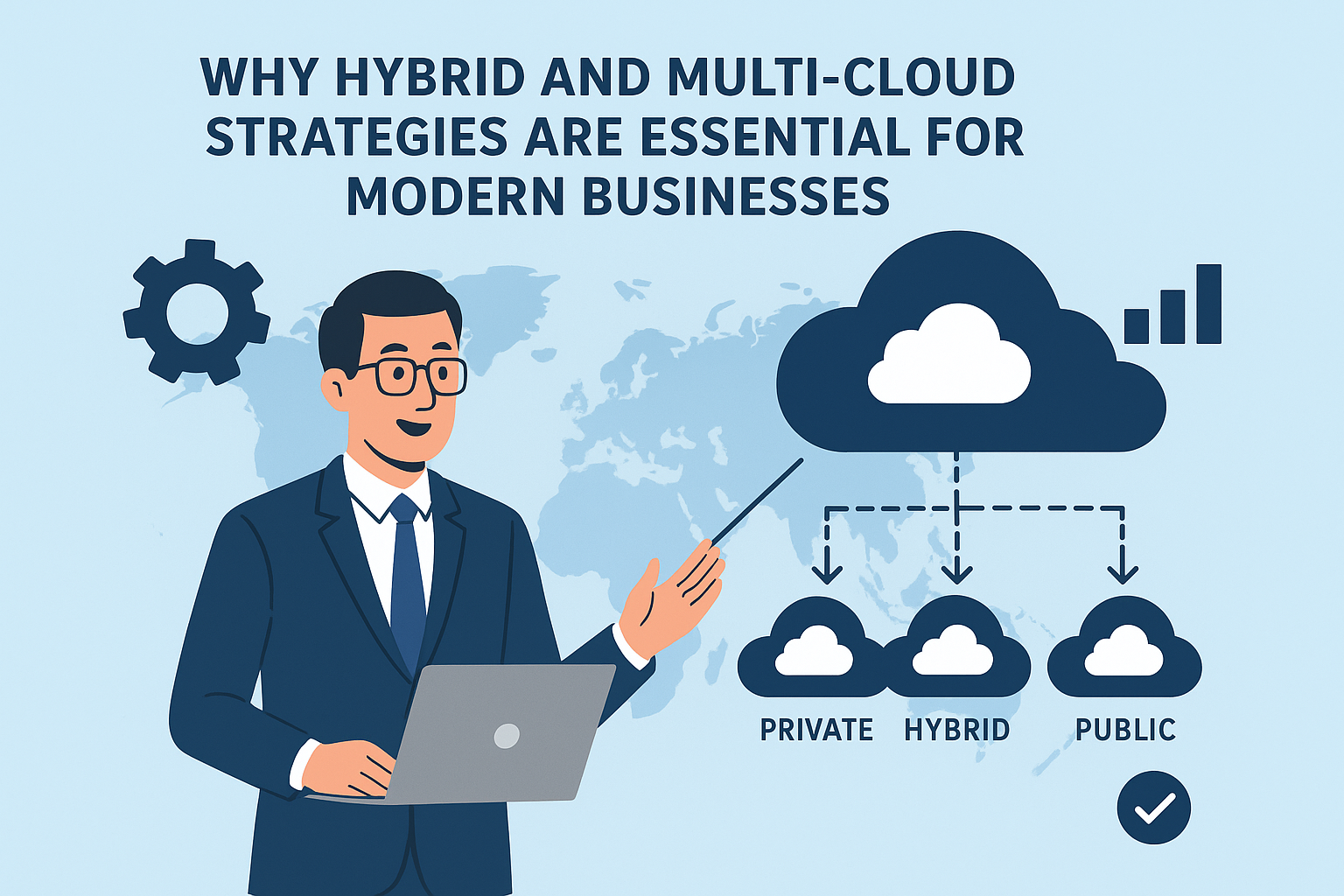In today’s digital economy cloud computing has become the foundation of innovation and growth. Across the USA organizations of every size from startups to Fortune 500 enterprises are adopting cloud deployment and migration services to achieve scalability, cost efficiency and long term resilience. Whether it is moving mission critical applications to the cloud, optimizing existing infrastructure or adopting hybrid and multi cloud solutions the cloud has transformed how businesses operate and compete.
Cloud deployment refers to the process of setting up and running applications, platforms and data systems in a cloud environment. Cloud migration focuses on moving data workloads and applications from on premises systems or legacy infrastructure to modern cloud platforms such as AWS Microsoft Azure and Google Cloud Platform. Together these strategies enable businesses in the USA to reduce costs, enhance security, ensure compliance and accelerate digital transformation.
At Informatics360 we provide end to end cloud consulting cloud integration and cloud optimization services designed to help companies harness the full potential of modern cloud computing.
Understanding Cloud Deployment and Migration
Cloud deployment is the process of delivering software applications, platforms, or infrastructure through a cloud environment instead of relying solely on physical hardware or on premises data centers. It allows businesses to scale resources on demand, reduce upfront capital costs, and increase flexibility in managing IT operations. For companies in the USA this approach creates opportunities to compete more effectively and respond quickly to market changes.
There are several common models of cloud deployment. Public cloud offers services over the internet and is highly scalable and cost effective, making it ideal for start-ups and small to mid sized businesses. Private cloud is hosted for a single organization and provides greater control and security, which is important for industries such as finance or healthcare. Hybrid cloud combines public and private models, offering the flexibility of both while keeping sensitive data in controlled environments. Multi cloud refers to the use of more than one cloud provider, giving businesses the ability to avoid vendor lock-in and take advantage of the strengths of different platforms.
Cloud migration is the process of moving data, applications, and workloads from on premises systems to the cloud. This can be achieved through different strategies. Lift and shift moves applications without significant changes, allowing for faster transitions. Re-platforming involves minor adjustments to improve performance in the cloud. Refactoring or cloud modernization involves rearchitecting applications to fully take advantage of cloud native services such as serverless computing or Kubernetes deployment. Each method has benefits depending on business goals, budget, and timelines.
A well planned cloud deployment and migration strategy reduces risks, improves compliance, and ensures the long term success of digital transformation initiatives.
Why Businesses in the USA Are Moving to the Cloud
Businesses in the USA are adopting cloud computing at an accelerated pace because it delivers measurable benefits across cost, scalability, security, and performance. The move from traditional infrastructure to cloud deployment and migration services is not simply about reducing IT costs. It is about creating the agility needed to compete in fast changing markets.
One of the biggest advantages of cloud adoption is scalability. Companies no longer need to invest heavily in physical servers or data centers. With cloud infrastructure they can increase or decrease resources as business demands shift. This flexibility is especially valuable for seasonal industries, e-commerce companies, and enterprises experiencing rapid growth.
Cost optimization is another powerful driver. By moving workloads into the cloud businesses can reduce capital expenditure on hardware and instead pay for services as they use them. With effective cloud optimization services organizations can further control expenses, monitor usage, and eliminate waste.
Security and compliance also play a central role. Modern cloud platforms such as AWS, Azure, and Google Cloud offer enterprise grade security, encryption, and compliance certifications that support industries with strict requirements including healthcare, finance, and government. Many businesses in the USA partner with experts in cloud security services to strengthen their defenses against cyber threats while ensuring compliance with frameworks such as HIPAA, GDPR, and SOC 2.
Another reason for the rapid growth of cloud adoption is reliability. With built in redundancy, automated disaster recovery, and high availability, cloud services deliver the performance levels businesses need to remain operational without interruption. Partnering with a team that provides cloud disaster recovery and backup solutions ensures that critical data and systems remain protected even in unexpected situations.
The result is a clear shift across the USA. Companies are moving from legacy systems to modern, agile, and secure cloud environments supported by cloud consulting services that align technology investments with business outcomes.
Cloud Consulting and Integration Services
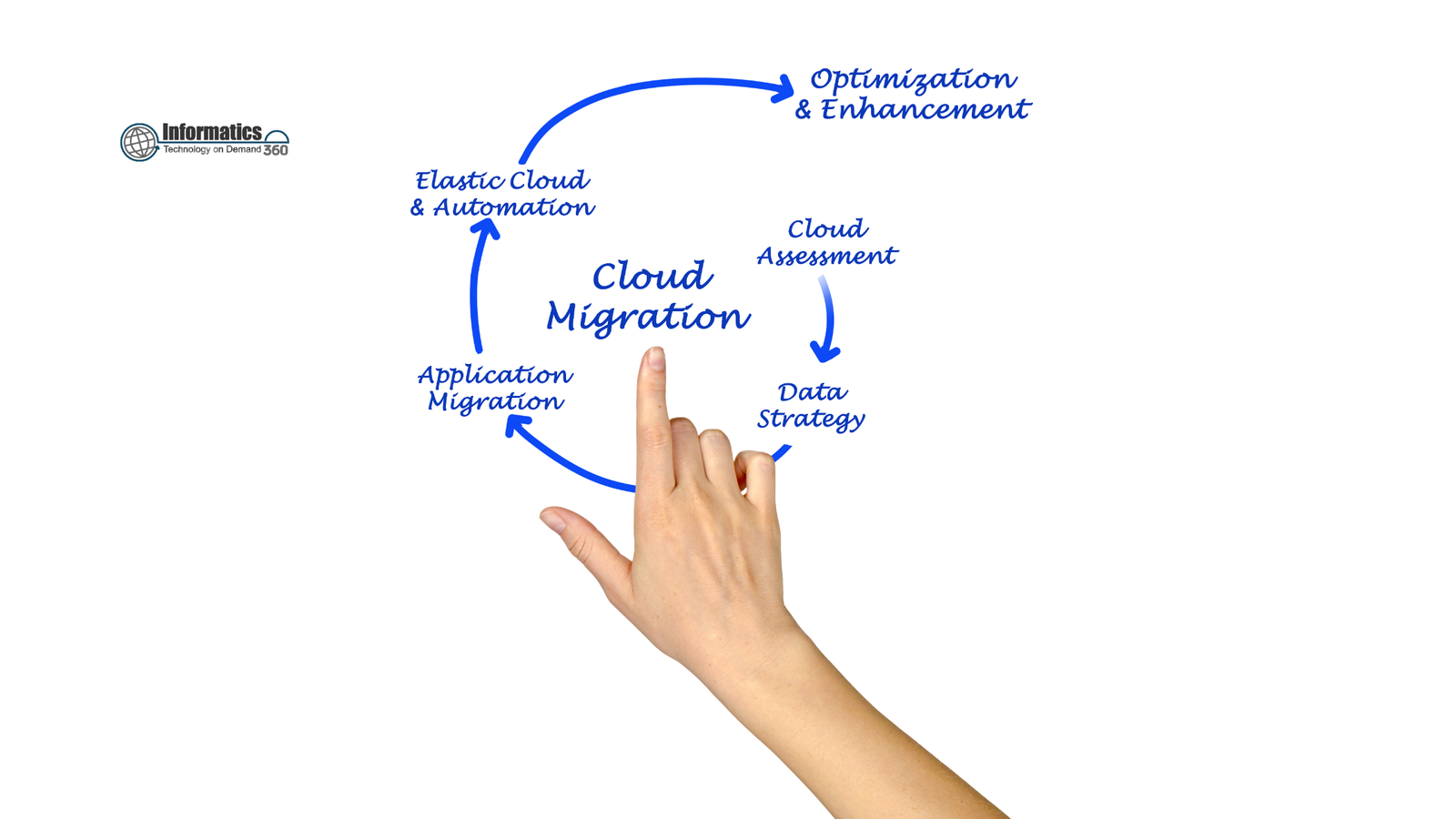
Successful cloud adoption requires more than just migrating data or applications. It demands a clear strategy, expert guidance, and seamless integration with existing systems. This is where professional cloud consulting services play a crucial role for businesses in the USA.
Cloud consulting provides organizations with a roadmap tailored to their unique needs. Consultants assess existing IT infrastructure, identify the right cloud deployment models, and recommend the best migration strategy. This ensures that businesses avoid common pitfalls such as cost overruns, downtime, and security vulnerabilities. By relying on experienced consultants, companies can accelerate their cloud transformation while minimizing risks.
Integration is another essential part of the journey. Many organizations still rely on legacy systems that must work seamlessly with cloud platforms. With cloud integration services businesses can connect on premises applications, SaaS platforms, and third party tools into a unified ecosystem. This integration improves data flow, streamlines operations, and enhances collaboration across teams.
Enterprises also benefit from platform specific expertise. Whether migrating to AWS cloud services, Microsoft Azure, or Google Cloud Platform, consultants help businesses choose the right solutions and ensure smooth integration. This includes configuring APIs, managing data pipelines, and implementing security protocols tailored to industry standards.
The result of combining consulting and integration services is a stronger, more resilient digital foundation. Businesses in the USA gain clarity, reduce operational complexity, and unlock the full value of cloud computing.
Cloud Data Services and Infrastructure Management
Data is one of the most valuable assets for modern businesses, and the cloud has transformed how organizations in the USA store, manage, and analyze information. Cloud data services allow enterprises to move away from outdated storage models and instead take advantage of secure, scalable, and high performance environments.
Cloud data services provide multiple benefits. Companies can store large volumes of data without worrying about hardware limitations. They can process real time information for analytics and decision making, and they can use cloud based tools to manage everything from customer records to enterprise applications. This level of flexibility helps businesses adapt quickly to market demands while maintaining compliance with data protection regulations.
Infrastructure management is another vital area where cloud adoption delivers value. Businesses that partner with providers of cloud infrastructure management gain continuous monitoring, automated updates, and performance optimization across their cloud environments. This ensures that systems remain reliable and scalable even as demands grow.
In addition to reliability, effective infrastructure management reduces downtime, strengthens security, and provides cost control. Through proactive monitoring and optimization businesses can identify performance bottlenecks, prevent outages, and maximize the return on their cloud investments.
When combined, cloud data services and infrastructure management create a foundation that enables innovation. Organizations in the USA can run advanced analytics, support artificial intelligence projects, and scale applications globally without compromising speed or security.
Advanced Cloud Solutions for Modern Enterprises
As businesses in the USA continue to embrace digital transformation, the demand for advanced cloud solutions has grown rapidly. Beyond basic migration and hosting, organizations are now adopting modern approaches that allow them to scale, innovate, and remain competitive in fast moving markets.
One of the leading approaches is hybrid cloud, which blends public and private environments to provide both flexibility and control. Companies with strict compliance requirements can keep sensitive data in a private environment while using the public cloud for scalable applications. Multi cloud strategies are also increasingly popular, giving businesses the ability to use services from multiple providers such as AWS, Azure, and Google Cloud. This reduces reliance on a single vendor and provides access to the strengths of each platform.
Modern enterprises are also investing in cloud native development and application modernization. With cloud modernization services businesses can rearchitect legacy applications to take full advantage of cloud based tools, microservices, and containers. Kubernetes deployment and serverless computing enable faster development cycles, improved efficiency, and reduced operational overhead.
Another key innovation is cloud monitoring and optimization, which ensures continuous performance across distributed systems. Partnering with experts in cloud monitoring and optimization services helps businesses identify performance gaps, reduce unnecessary costs, and ensure resources are allocated efficiently.
Advanced solutions also extend to managed services. By working with providers of cloud managed services companies in the USA can offload the complexity of day to day operations. This includes infrastructure management, backups, disaster recovery, and compliance monitoring. The result is a secure, optimized, and future ready cloud environment that allows businesses to focus on growth rather than IT challenges.
Optimizing Cloud for Business Growth
Moving to the cloud is only the first step. To maximize value, businesses in the USA must focus on optimization. Cloud optimization ensures that resources are being used effectively, costs are controlled, and systems deliver the performance needed to support business goals.
Cloud cost optimization is one of the most important areas for growth. Without proper oversight, organizations often pay for unused storage, overprovisioned servers, or redundant services. By analyzing usage patterns and implementing smarter resource allocation, companies can save significant amounts while still meeting performance requirements.
Monitoring is another critical component. With cloud monitoring services businesses gain real time insights into system performance, network activity, and security. This visibility makes it easier to identify inefficiencies, address bottlenecks, and ensure applications remain reliable under varying workloads.
Disaster recovery and backup strategies also drive long term business resilience. Through cloud disaster recovery and backup solutions organizations can maintain business continuity even in the face of unexpected disruptions. Automated recovery processes and geo redundant storage protect mission critical data and ensure compliance with industry regulations.
Finally, optimization also means planning for future innovation. Enterprises that adopt cloud ROI optimization strategies look beyond immediate savings and measure the long term impact of cloud investments. By aligning cloud performance with revenue growth, customer experience, and operational efficiency, companies can ensure that their technology investments consistently support business outcomes.
Optimizing cloud services is therefore not just a technical exercise. It is a business strategy that directly contributes to scalability, profitability, and competitive advantage.
Popular Cloud Platforms in the USA
When businesses in the USA plan their cloud deployment and migration strategies they often focus on the three leading platforms: Amazon Web Services (AWS), Microsoft Azure, and Google Cloud Platform (GCP). Each of these providers offers unique features, pricing models, and solutions that make them suitable for different industries and business sizes.
AWS cloud services are the most widely adopted and provide an extensive range of tools covering infrastructure, storage, machine learning, and serverless computing. Many enterprises choose AWS for its maturity, scalability, and global reach. By leveraging AWS cloud consulting services companies can take advantage of advanced capabilities while ensuring cost efficiency and compliance.
Microsoft Azure is another top choice, especially for organizations that already use Microsoft products. Azure integrates seamlessly with tools like Office 365, Dynamics, and Active Directory, making it a natural fit for businesses that want strong compatibility across their IT environment. Partnering with a provider of Azure consulting services ensures that migration and deployment strategies are aligned with enterprise goals.
Google Cloud Platform has become increasingly popular thanks to its strong data analytics, artificial intelligence, and machine learning capabilities. For organizations that rely heavily on data driven decision making, GCP provides powerful tools for real time insights and advanced analytics. Businesses looking to modernize applications can benefit from Google Cloud consulting services that optimize workloads for innovation.
Many enterprises in the USA also adopt hybrid or multi cloud strategies to combine the strengths of these platforms. By working with experts in multi cloud and hybrid cloud solutions organizations can balance performance, cost, and compliance requirements while avoiding vendor lock in.
Choosing the right platform depends on the business model, industry requirements, and future growth plans. With professional consulting and integration, companies can ensure they gain the maximum benefits from their chosen cloud environment.
Future of Cloud Computing for US Businesses
The future of cloud computing in the USA is centered on innovation, intelligence, and scalability. As technology evolves, businesses are not only migrating to the cloud but also transforming how they use it to drive growth and efficiency.
Artificial intelligence and automation will play a key role in the next phase of cloud adoption. By combining cloud data services with AI powered analytics, companies can gain predictive insights, improve customer experiences, and streamline decision making. Automation will further reduce manual workloads, allowing IT teams to focus on strategy rather than routine maintenance.
Cloud native development is expected to become the standard. Businesses will increasingly adopt microservices, containers, and serverless computing to build applications that are faster, more scalable, and easier to update. This shift will accelerate cloud modernization projects across industries.
Security and compliance will also remain a top priority. As cyber threats grow more sophisticated, US businesses will continue to invest in cloud security services to protect sensitive information and meet regulatory requirements. Providers will strengthen encryption, monitoring, and compliance frameworks to address industry specific needs in healthcare, finance, government, and beyond.
Another key trend is the growing importance of cloud ROI optimization. Enterprises will no longer measure success only by cost savings but by how effectively cloud strategies support revenue growth, operational efficiency, and customer satisfaction. Partnering with a team that specializes in cloud ROI optimization ensures that investments in cloud infrastructure deliver long term value.
With these advancements, the cloud will continue to be a foundation for business transformation in the USA. Companies that act early and adopt innovative cloud solutions will stay ahead of competitors and position themselves for sustainable growth.
Conclusion
Cloud deployment and migration services have become essential for businesses in the USA that want to remain competitive in a digital economy. From reducing infrastructure costs to improving scalability and ensuring security, the cloud delivers benefits that extend far beyond traditional IT environments. With the right strategy, companies can modernize applications, integrate data services, and unlock powerful opportunities for growth.
The journey does not stop at migration. Continuous consulting, optimization, and monitoring are necessary to maximize performance and return on investment. Whether it is cloud consulting, cloud integration, or advanced services such as cloud modernization, businesses need the right partner to ensure long term success.
At Informatics360 we specialize in providing end to end cloud solutions tailored for American enterprises. Our expertise in cloud migration, cloud security, and managed services ensures that your business not only moves to the cloud but thrives in it.
If you are ready to start your journey or want to optimize your existing cloud environment, our team is here to help. Contact us today to discover how we can design the right cloud deployment and migration strategy for your business in the USA.

